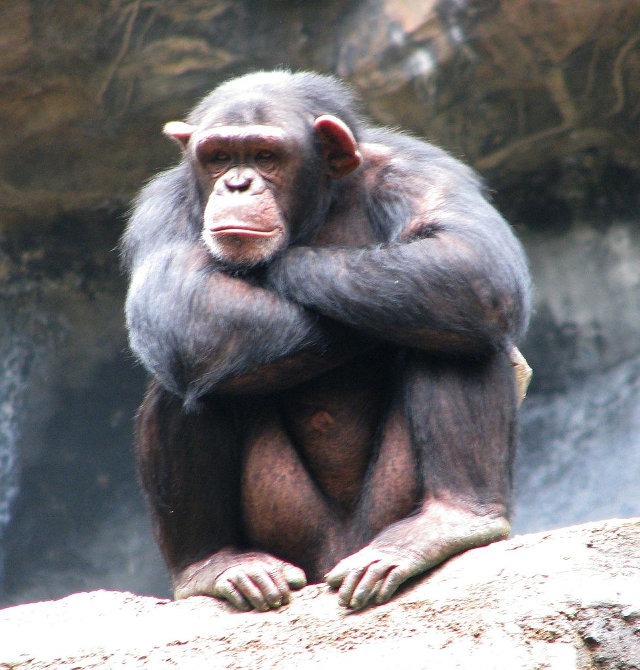
An article published in the journal “Royal Society Open Science” describes a research that documented the use of alcohol by wild chimpanzees (foto ©Rennett Stowe). This study focused on a population of chimpanzees living in Bossou, Guinea, West Africa who voluntarily drink a kind of palm wine. They use leaves to collect the fermenting tree juice.
The fact that there are apes able to metabolize ethanol like humans has long been known. However, stories of apes that got drunk existed only as unchecked anecdotes and therefore insufficient from the scientific point of view to evaluate the behavior of species genetically close to humans.
A team of researchers led by Dr. Kimberley Hockings of the Oxford Brookes University and the Centre for Research in Anthropology, Lisbon, Portugal, conducted a study on chimpanzees in Guinea between 1995 and 2012. The local population of Pan troglodytes verus, a subspecies of the common chimpanzees that live in those areas, was observed in the way it uses of the palm of the Raphia hookeri species.
The natural sugars of this species of palm trees naturally ferment very quickly. Humans living in the area regularly consume this palm wine, which has an average alcohol content of just over 3%. They know that chimpanzees consume the fermented juice of the tree as well so the researchers could find places in which they could make their observations and filming.
Chimpanzee, including young ones, were seen several times use the trees leaves to collect the juice. The leaves were chewed to make a kind of sponge to soak in the fermented juice and then they drank it, even in large quantities. Chimpanzees who drank this wine palm gave several signs of drunkenness. As in humans, the reactions are different so it happened to see an ape fall asleep immediately after drinking while others got agitated.
Humans and African apes share a mutation that allows them to metabolize ethanol. This suggests that this mutation dates back to a common ancestor existed millions of years ago. It gives an advantage to the animals who have it and can eat foods such as fruits fallen from the trees that are in a fermentation stage or drink palm juice in fermentation. The advantage derives from the fact that these fermenting foods contain sugars therefore constitute a good meal.
This study shows that chimpanzees may voluntarily seek an alcoholic beverage, just like their human cousins. Further research may provide information on the use of alcohol in other populations of chimpanzees but also of other apes such as gorillas and bonobos.

